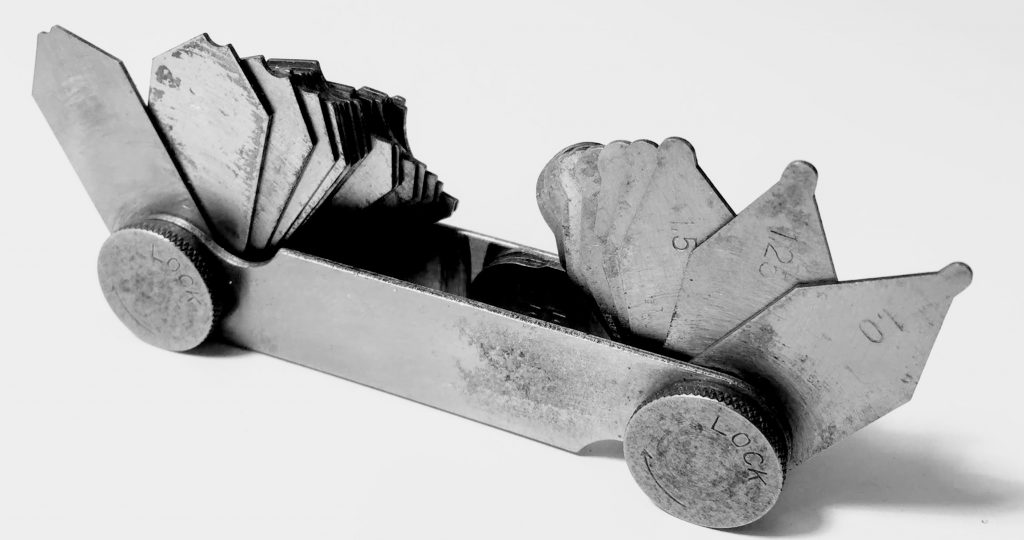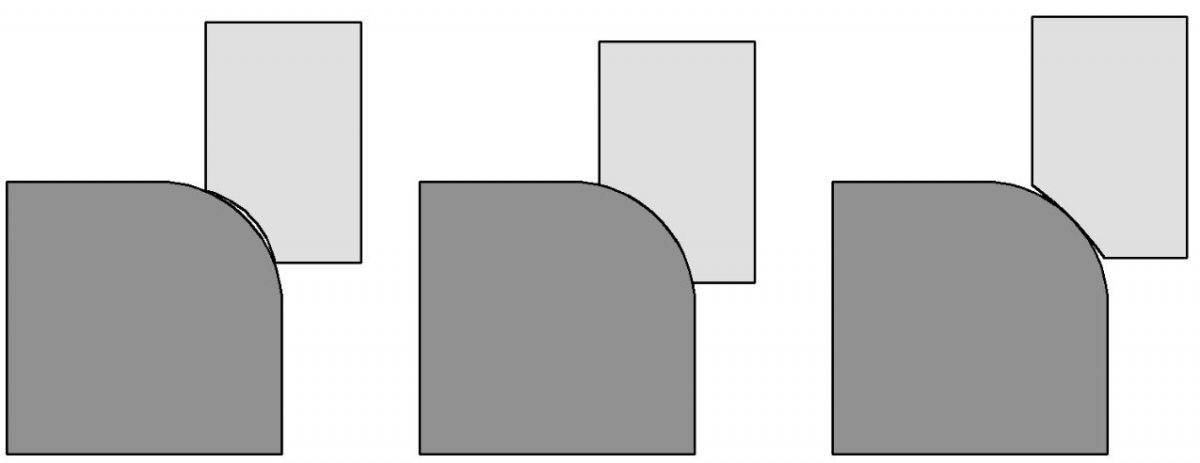A radius gauge is a measuring tool used to determine and verify the radii or curved profiles of objects, typically in manufacturing, engineering, and woodworking applications. It is designed to assist in measuring and checking the radius of curved or rounded edges and surfaces accurately.
The typical design of a radius gauge consists of a set of thin, flat, and flexible metal or plastic leaves or blades, each with a concave or convex shape on one or both sides. These leaves come in various sizes, each corresponding to a specific radius measurement. The radius measurements are usually marked or engraved on each leaf for easy identification.

To use a radius gauge, you select the appropriate leaf that closely matches the curvature of the object you want to measure. Then, you place the gauge against the curved surface, ensuring that it follows the contour accurately. If the selected leaf fits the curvature without gaps or overlaps, the measurement corresponds to the radius indicated on that leaf.
Radius gauges are valuable tools in industries where precise measurements of curved or rounded features are essential. They find applications in tasks such as verifying the radii of machined parts, checking the curvature of moldings, and ensuring that rounded edges meet design specifications. By providing a quick and straightforward way to assess radii, these gauges contribute to maintaining quality and consistency in manufacturing and fabrication processes.

